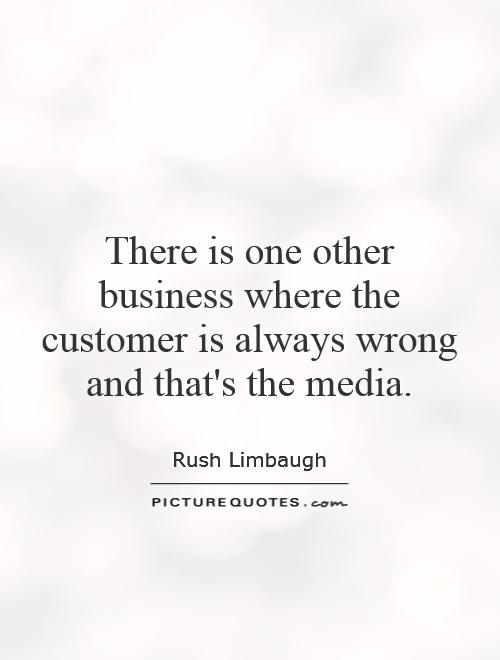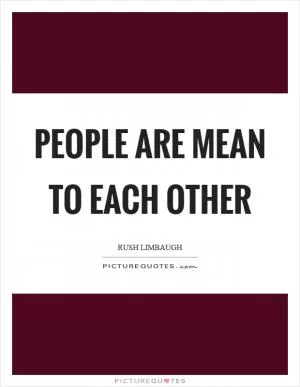There is one other business where the customer is always wrong and that's the media

There is one other business where the customer is always wrong and that's the media
Rush Limbaugh, a conservative radio host and political commentator, is known for his controversial and often polarizing opinions. Throughout his career, Limbaugh has built a loyal following of listeners who appreciate his no-holds-barred approach to discussing current events and politics. However, his confrontational style has also led to criticism and backlash from those who disagree with his views.One of Limbaugh's most famous catchphrases is "the customer is always wrong," a sentiment he often applies to his relationship with his audience. Limbaugh believes that his role as a media personality is not to cater to the whims of his listeners, but rather to speak his mind and share his opinions, regardless of whether they are popular or well-received. In this sense, Limbaugh sees himself as a truth-teller, unafraid to challenge conventional wisdom and push back against mainstream narratives.
This attitude has made Limbaugh a lightning rod for controversy, with critics accusing him of spreading misinformation, promoting divisive rhetoric, and stoking political tensions. Despite these criticisms, Limbaugh has remained steadfast in his beliefs and unapologetic in his approach to broadcasting. He has cultivated a persona as a provocateur, willing to say what others are afraid to say and challenge the status quo.
In the context of the media industry as a whole, Limbaugh's philosophy that "the customer is always wrong" can be seen as a reflection of the broader debate over the role of journalism and the responsibilities of media outlets. In an era of fake news, echo chambers, and partisan bias, the media landscape is more polarized and contentious than ever before. Consumers are bombarded with conflicting information and competing narratives, making it increasingly difficult to discern fact from fiction.












 Friendship Quotes
Friendship Quotes Love Quotes
Love Quotes Life Quotes
Life Quotes Funny Quotes
Funny Quotes Motivational Quotes
Motivational Quotes Inspirational Quotes
Inspirational Quotes